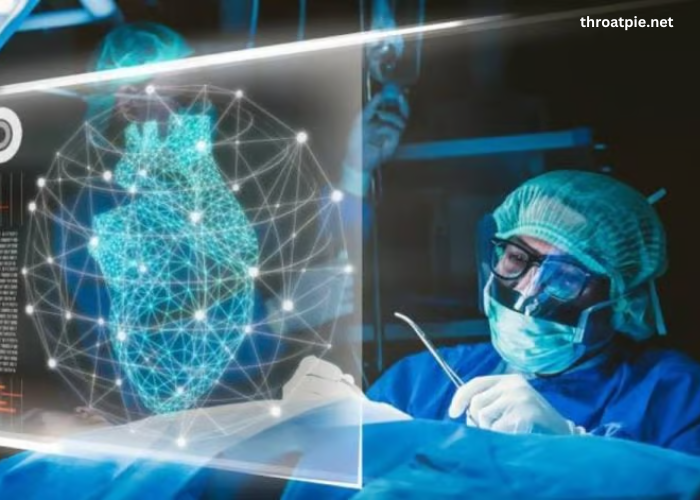Healthcare is on the cusp of a revolution. As technology evolves and scientific discoveries accelerate, the future of healthcare promises to be more personalized, accessible, and effective. From artificial intelligence to gene editing, groundbreaking innovations are reshaping the way we approach health and wellness. Here, we explore some of the most exciting trends and breakthroughs that are set to define the future of healthcare.
1. Artificial Intelligence (AI) and Machine Learning
AI is transforming healthcare by enhancing diagnostics, streamlining administrative processes, and personalizing treatments. Machine learning algorithms can analyze vast datasets to identify patterns that human clinicians might miss. For example, AI-powered tools are now capable of detecting diseases like cancer and diabetic retinopathy at early stages with remarkable accuracy. Furthermore, AI is being used to develop predictive models for patient outcomes, helping healthcare providers make more informed decisions.
2. Telemedicine and Remote Care
The COVID-19 pandemic accelerated the adoption of telemedicine, but its benefits extend far beyond emergencies. Virtual consultations and remote monitoring devices enable patients to access care from the comfort of their homes, reducing the need for hospital visits. Wearable devices, such as smartwatches and biosensors, are empowering individuals to track their health in real-time, providing valuable data for physicians and encouraging proactive management of chronic conditions.
3. Gene Editing and Precision Medicine
The advent of CRISPR and other gene-editing technologies has unlocked unprecedented possibilities in treating genetic disorders. Precision medicine—tailoring treatments based on an individual’s genetic makeup—is gaining traction. This approach allows for more targeted therapies with fewer side effects. For instance, breakthroughs in oncology now enable doctors to design treatments specific to a patient’s tumor profile, dramatically improving survival rates.
4. Digital Therapeutics
Digital therapeutics use software and apps to prevent, manage, or treat medical conditions. These tools often complement traditional treatments and are particularly effective for mental health, diabetes management, and substance abuse disorders. By combining behavioral science with technology, digital therapeutics offer scalable and cost-effective solutions to some of the most pressing healthcare challenges.
5. Robotics and Automation
Robots are playing an increasingly important role in surgery, rehabilitation, and elder care. Surgical robots offer unparalleled precision, reducing recovery times and minimizing complications. Automation is also being deployed in pharmacies and laboratories to handle repetitive tasks, allowing healthcare workers to focus on patient care.
6. Advances in Biotechnology
Biotechnology is driving innovations such as lab-grown organs, regenerative medicine, and advanced drug delivery systems. Scientists are exploring ways to grow tissues and organs in laboratories, potentially eliminating the need for organ transplants. Regenerative therapies, like stem cell treatments, are showing promise in repairing damaged tissues and treating degenerative diseases.
7. Health Data and Interoperability
As healthcare systems generate more data than ever, ensuring interoperability and security is crucial. The integration of electronic health records (EHRs) across providers enables seamless sharing of patient information, leading to better-coordinated care. Advances in blockchain technology are also being explored to secure patient data and enhance privacy.
8. Mental Health Innovations
Mental health is finally receiving the attention it deserves, thanks to new technologies and changing societal attitudes. AI-driven chatbots, virtual reality therapy, and online counseling platforms are making mental health support more accessible and less stigmatized. Additionally, neuroscience research is paving the way for breakthroughs in understanding and treating conditions like depression, anxiety, and PTSD.
Challenges Ahead
While the future of healthcare is bright, significant challenges remain. Issues such as affordability, equity, and ethical considerations must be addressed to ensure that these innovations benefit everyone. Policymakers, healthcare providers, and technology developers will need to collaborate closely to overcome these hurdles and build a more inclusive healthcare system.
Conclusion
The future of healthcare is being shaped by extraordinary innovations that have the potential to improve millions of lives. As we embrace these advancements, the focus must remain on creating a patient-centered system that prioritizes accessibility, quality, and equity. By leveraging technology and scientific discovery, we can move closer to a world where healthcare is not just about treating illness but fostering overall well-being.





